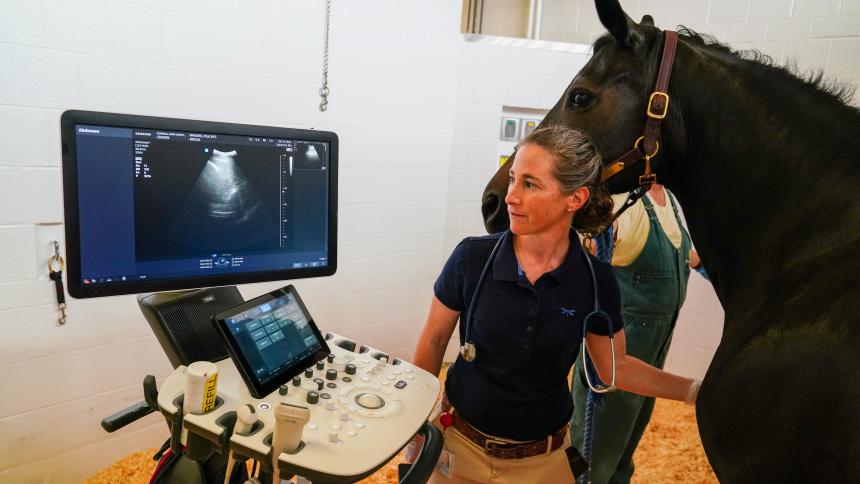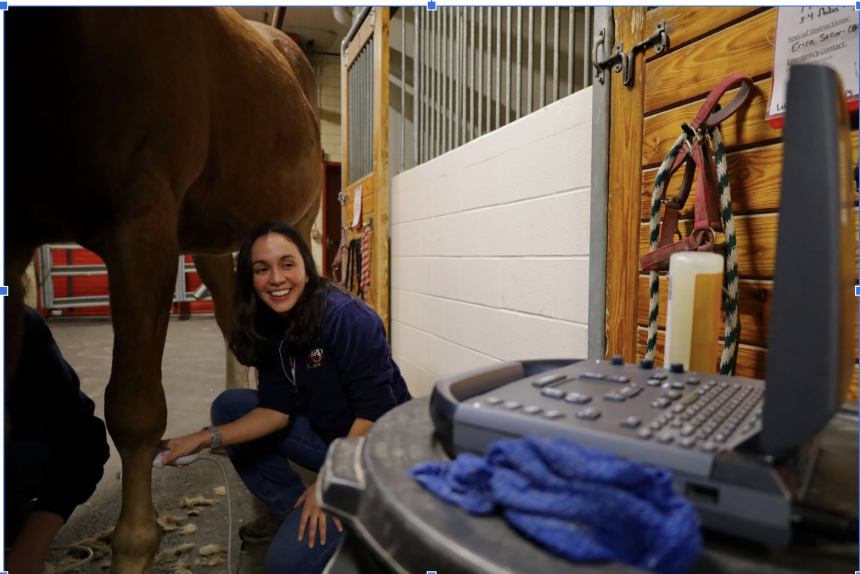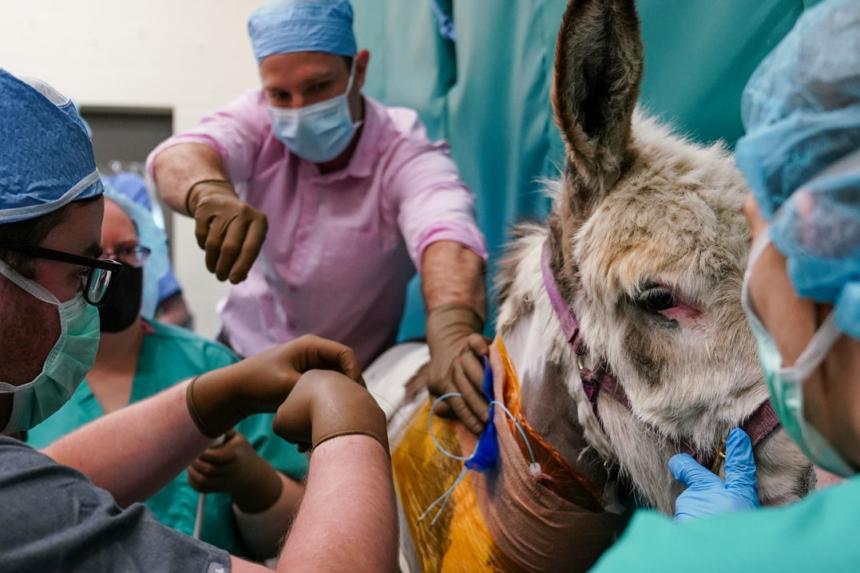In the News

June 25, 2025
A key strategy for reducing antibiotic use in equine practice is to limit prophylactic administration and only treat horses with evidence of infection. “Every time we prescribe an antibiotic, we are creating a potential risk of resistance, both the pathogen causing the disease and the natural flora of the patient,” said Pamela Velarde, DVM, a resident in large animal medicine at Cornell University College of Veterinary Medicine’s Department of Clinical Sciences.

March 20, 2025
At Cornell Equine, we are proud to highlight the journeys of students who are shaping the future of equine medicine. Lucia Younger, a dedicated veterinary student, has been deeply involved in equine research, clinical practice, and mentorship throughout her academic career at Cornell.

March 11, 2025
Cornell Equine is proud to share research news on Borrelia burgdorferi and nuchal bursitis in horses, recently featured at the 2024 AAEP Kester News Hour. This annual session at the American Association of Equine Practitioners (AAEP) Convention highlights the most notable equine research of the year, underscoring its impact on veterinary practice.

March 09, 2025
The annual meeting of the American Association of Equine Practitioners, held last month in Orlando, Florida, featured key talks and recognitions from Cornell University College of Veterinary Medicine (CVM) faculty and students as well as Cornell-trained equine practitioners and researchers, exemplifying the impact of the CVM on the field of equine health.

August 11, 2022
In a collaborative effort between multiple services at the Cornell University Hospital for Animals, mini donkey Nix's surgery went well.
